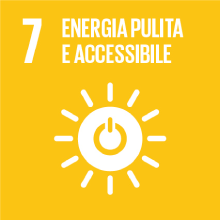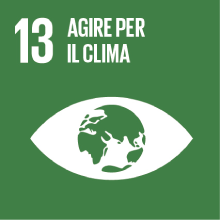ENVIRONMENTAL HISTORY OF THE MEDIEVAL MEDITERRANEAN
- Anno accademico
- 2020/2021 Programmi anni precedenti
- Titolo corso in inglese
- ENVIRONMENTAL HISTORY OF THE MEDIEVAL MEDITERRANEAN
- Codice insegnamento
- LMH240 (AF:340209 AR:180967)
- Lingua di insegnamento
- Inglese
- Modalità
- In presenza
- Crediti formativi universitari
- 6
- Livello laurea
- Laurea magistrale (DM270)
- Settore scientifico disciplinare
- L-FIL-LET/07
- Periodo
- 3° Periodo
- Anno corso
- 2
- Sede
- VENEZIA
- Spazio Moodle
- Link allo spazio del corso
Inquadramento dell'insegnamento nel percorso del corso di studio
Risultati di apprendimento attesi
-describe ideas concerning nature and humans from a historical perspective,
-exemplify how perceptions of humans and nature affected society, cultural expression and community development in the Middle Ages,
-describe the management of natural resources, emergency events and disasters in the Middle Ages.
Prerequisiti
Contenuti
Testi di riferimento
D. ABULAFIA, The Great Sea: A Human History of the Mediterranean, Oxford, 2011
A. C. ISENBERG, ‘Introduction: A New Environmental History’, in A. Isenberg (ed.), The Oxford Handbook of Environmental History, Oxford, 2014, pp. 1-20
J. D. HUGHES, The Mediterranean: An Environmental History, Santa Barbara, CA, 2005
R. C. HOFFMANN, An environmental history of medieval Europe, Cambridge, 2014
A. IZDEBSKI and M. MULRYAN, Environment and Society in the Long Late Antiquity, Leiden, 2019
E. XOPLAKI, et alii, ‘The Medieval Climate Anomaly and Byzantium: A review of the evidence on climatic fluctuations, economic performance and societal change’, Quaternary Science Reviews, 136 (2016), pp. 229-252
R. C. HOFFMANN, ‘Economic Development and Aquatic Ecosystems in Medieval Europe’, The American Historical Review, 101. 3 (1996), pp. 631-669
J. PREISER-KAPELLER, ‘A Collapse of the Eastern Mediterranean? New results and theories on the interplay between climate and societies in Byzantium and the Near East, ca. 1000–1200 AD’, Jahrbuch der Österreichischen Byzantinistik, 65 (2015), pp. 195-242
Modalità di verifica dell'apprendimento
Oral examination 70% + Essay 30%. These are the "Marking Criteria":
30 cum laude
Overall
Outstanding answer: exceptionally well structured and informed, showing striking personal insight and originality.
Understanding
Authoritative; full understanding of relevant material; highly original analysis; highly independent and critical judgment; high degree of precision.
Selection & Coverage
Unusually extensive range of sources, applied with outstanding insight; exceptionally effective use of evidence to support argument.
Structure of the essay
Excellent structure, focus, presentation and writing style, contributing to a highly compelling argument.
29-30/30
Overall
Highly thoughtful answer informed by wider reading, showing clarity of thought, personal insight and originality.
Understanding
Thorough understanding of relevant material; insightful discussion; evidence of independent and critical judgment.
Selection & Coverage
Extensive range of sources applied insightfully; very effective use of evidence to support argument.
Structure of the essay
Very good structure and focus; clear and fluent writing style; compelling argument.
28-29/30
Overall
Thoughtful answer informed by wider reading, showing clarity of thought and personal insight.
Understanding
Thorough understanding of relevant material; insightful discussion and analysis.
Selection & Coverage
Extensive range of sources applied insightfully. Effective use of evidence to support argument
Structure
Well structured and focused; clear and fluent writing style; persuasive argument.
27-28
Overall
Good understanding of relevant material; coherent and logical argument.
Understanding
Good understanding of important facts and concepts; substantive analysis of key issues.
Selection & Coverage
Good use of relevant sources/literature; employment of a range of evidence to support argument.
Structure
Coherent and logical presentation.
26-27
Overall
Sound understanding; limited analysis.
Understanding
Generally sound understanding of relevant material but limited range or depth; more descriptive that analytical.
Selection & Coverage
Appropriate but limited use of sources/literature; attempts to support argument, but these are awkward and/or unconvincing.
Structure
Generally clear presentation but awkward structure and/or limited development of argument.
23-25
Overall
Basic understanding and analysis.
Understanding
Some general knowledge but little detail; minimal demonstration of analytical thought.
Selection & Coverage
Sparse coverage of basic material; generally unsuccessful in using evidence to support argument.
Structure
Adequate structure and presentation, but unclear or disorganized in places.
18-23
Overall
Unsystematic, incomplete and/or inaccurate.
Understanding
Some knowledge but poor understanding; numerous inaccuracies; meaning often unclear; poor analysis.
Selection & Coverage
Inappropriate and/or very minimal use of sources/literature; poor use of evidence to support argument.
Structure
Disorganised and unclear presentation; consistently poor spelling and grammar; incoherent argument; unacceptably brief.
Modalità di esame
Metodi didattici
Obiettivi Agenda 2030 per lo sviluppo sostenibile
Questo insegnamento tratta argomenti connessi alla macroarea "Cambiamento climatico e energia" e concorre alla realizzazione dei relativi obiettivi ONU dell'Agenda 2030 per lo Sviluppo Sostenibile


